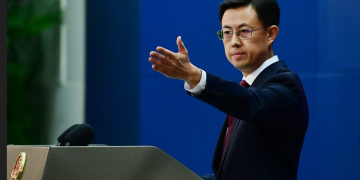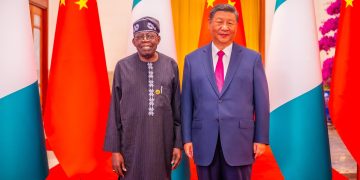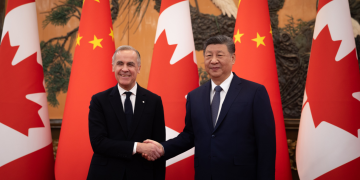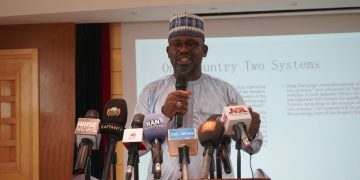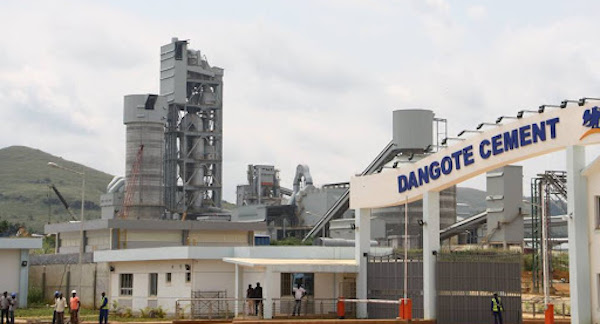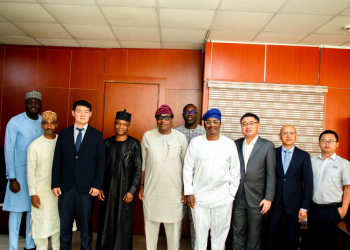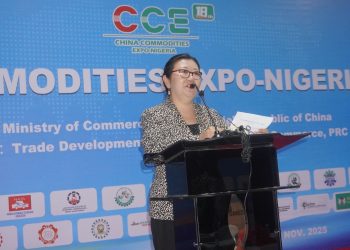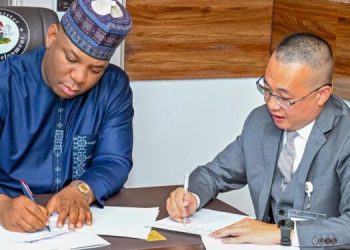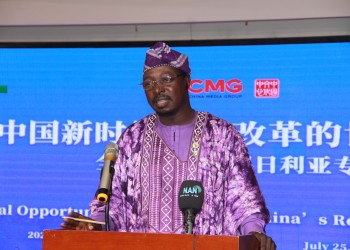Some twelve years ago in 2010, there was fanfare and excitement in Nigeria’s financial markets following the listing on the stock exchange of Dangote Cement, which would go on to become the country’s largest firm by market capitalization.
A number of other significant cement companies (such as the Benue Cement Company) owned by Dangote Industries Limited (DIL) were merged with Obajana Cement PLC (OCP) to become the enlarged Dangote Cement Plc.
In 1992, the Kogi State Government (KSG) incorporated Obajana Cement PLC (OCP) as a public limited liability company.
Sometime in early 2002, about 10 years after the incorporation of the OCP (which still had no assets or operations as of that time), KSG invited Dangote Industries Limited (DIL) to take the opportunity of the significant limestone deposit in the State by establishing a cement plant in the State.
Following several engagements and assessment of the viability of the proposed opportunity, DIL agreed that it would establish a cement plant in Kogi State and provide the entirety of the substantial capital required for the investment.
As part of the Agreement between Dangote and Kogi State Government, DIL would establish a cement plant with a capacity of 3,500,000 metric tonnes per annum; DIL shall hold 100% of the shareholding in OCP, and source for all the funds required to develop the cement plant.
The Kogi State Government also had the option to acquire 5% equity shareholding in OCP within 5 years.
built the cement factory, much bigger and better than envisaged,” according to Dangote Industries Limited. it and KSG in relation to OCP. It
“Kogi State Government could not meet its financial obligations of contributing to the funding the plant in any form; neither could KSG fund acquisition of 5% equity shares in OCP when it was asked on a number of occasions to exercise the purchase option.”
This lack of foresight by successive Kogi State Governors since 2002 to not exercise its option to acquire 5% of OCP and by extension the enlarged Dangote Cement has led to the state losing an estimated N170 billion since the listing of Dangote Cement, in the form of dividends and capital gains due to shareholders, according to MoneyCentral analysis.
Dangote Cement closed trading at N220 per share on Friday for a market capitalization of N4.17 trillion. Its shares were listed at N135 in 2010, meaning Kogi State could have made N72.25 billion in capital gains if it owned 5% of Dangote Cement shares.
For dividends, Kogi State lost the chance to earn a total of N97.325 billion since 2010 by refusing to exercise its 5% equity stake in Dangote Cement which would have amounted to 850 million of shares. Dangote Cement has 17.04 billion shares outstanding.
Dangote Cement has paid a total of N114.50 per share in dividends to investors between 2010 and 2022.
It paid N2.25 in 2010 financial year, N1.25 in 2011, N3 in 2012, N7 in 2013, N6 in 2014, N8 in 2015, N8.5 in 2016, N10.5 in 2017, N16 in 2018, N16 in 2019, N16 in 2020, and N20 in 2021.
On the issue of Kogi State’s ability to afford the 5% equity stake, the CEO of a major financial services firm told MoneyCentral that Nigerian Governors could curb frivolous expenditure and invest in improving their respective states if they were sincere.
“Since 2007 we have had billions of dollars from the Excess Crude Account (ECA), shared with the States. You also have Abacha loot refund dollars given to states as well as billions of Naira in so called ‘security votes’. So Kogi State could have easily used part of these funds to exercise its option to purchase a 5% stake in Dangote Cement. Don’t also forget that as an insider the Kogi state would have gotten favourable terms and not purchased shares at the price at which the transaction was brought to market (N135).”
without any contribution from the Kogi State Government. DIL assiduously and at significant cost met all the terms of the agreement between



